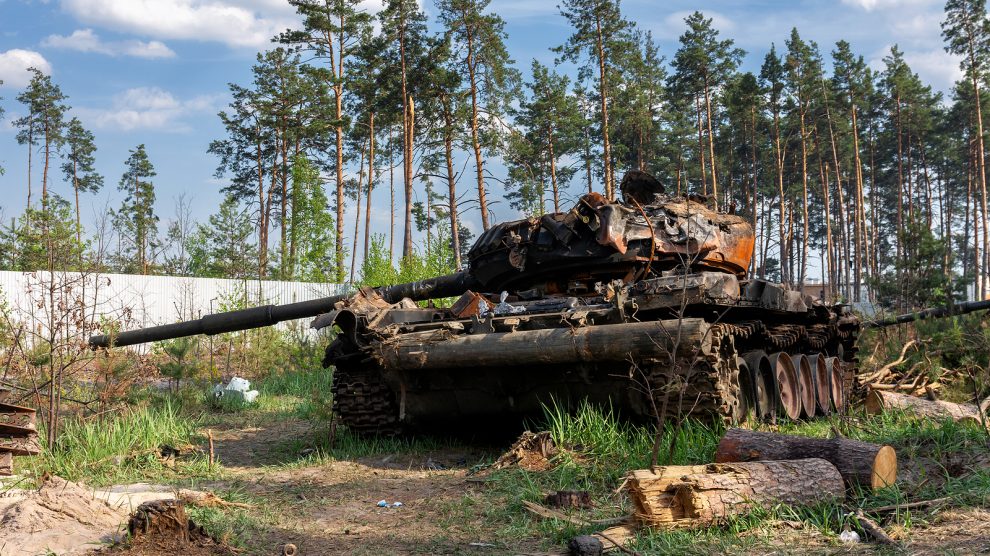The world must continue to pressure the Russians by implementing sanctions on the Russian Federation, and it must provide Ukraine with the assistance it needs to win the war. There could be catastrophic global consequences if it does not.
Russia’s second invasion of Ukraine has been catastrophic. The unprovoked and unnecessary war has resulted in the displacement of 14 million Ukrainians. Thousands of Ukrainian citizens have been murdered, and many Ukrainian soldiers have died defending their country.
Meanwhile, nearly 30,000 Russian soldiers have been killed. Despite the devastation caused by the war, the conflict continues without an end.
- Russia’s war crimes in Ukraine should lead to strengthening of international justice system
- Solutions are needed fast to unblock Ukrainian grain exports, says UN chief
- EU reveals plan to end its reliance on Russian gas
As the war enters its fourth month, some politicians and public figures have questioned why the international community continues to aid Ukraine. These critics argue that Ukraine is a country within Russia’s sphere of influence, and that the war must be resolved between these two countries. Others state that the international community should not get involved in the war as it does not impact their society. These claims, however, could not be further from the truth.
Price rises
First, the Russian invasion of Ukraine has resulted in a dramatic increase in gas and food prices. Russia’s war has diminished “the availability of crude oil,” which has created a “stark imbalance between supply and demand.” Several western countries also announced that they would stop buying Russian gas. In addition, Russia and Ukraine are major food producers. The continued war has made it more challenging to export food products from Russia and Ukraine, and this has led to an increase in global food prices.
According to a recent CNBC report, inflation from “agribusinesses, energy, and supply chains is spinning unchecked.” In other words, these rising prices have led to rampant inflation worldwide. While some economists hope that “inflation peaked in the first quarter” of 2022, there is a concern that things could get worse.
Second, Russia’s invasion of Ukraine has impacted the distribution of food. While some countries have only felt the economic impact of rising food prices, others have struggled to get an adequate amount of food. This is because the food supply lines to these countries, primarily in Africa and the Middle East, have been disrupted. Russia has positioned its fleet on the Black Sea, where it has established a blockade. This has severely impacted food shipments as Ukrainian vessels cannot leave their ports and bypass the Russian embargo.
These countries are struggling to find alternative ways to purchase food, and this has contributed to world hunger. Russia’s hold over Ukrainian exports also provides it with additional bargaining power over the international community. Should these trends continue, there is a genuine concern that a food crisis or a global famine could occur.
Global recession
Finally, given the recent rise in gas and food prices, and the increase in inflation, some experts worry about the possibility of a global recession. This could result in higher levels of unemployment, contracted measures of income, and stagnation in economic growth.
Recovering from a recession takes time, and in many cases, is often slow. This would be particularly damaging as many countries around the world are still struggling to recover from the economic effects of the coronavirus pandemic. If a global recession were to occur, this would undo many of the recovery efforts made during and after the initial stages of the pandemic.
Overall, many have voiced their concerns over rising prices, higher inflation, world hunger, and the potential for a global recession. Should Russia continue its unprovoked war in Ukraine, the consequences will be dire. Therefore, it is in the international community’s best interest to stop Russia and its illegal war in Ukraine.
The world must continue to pressure the Russians by implementing sanctions on the Russian Federation, and it must provide Ukraine with the assistance it needs to win the war. Otherwise, if Russia continues its unnecessary invasion, the world will face significant consequences.
Unlike many news and information platforms, Emerging Europe is free to read, and always will be. There is no paywall here. We are independent, not affiliated with nor representing any political party or business organisation. We want the very best for emerging Europe, nothing more, nothing less. Your support will help us continue to spread the word about this amazing region.
You can contribute here. Thank you.








Add Comment